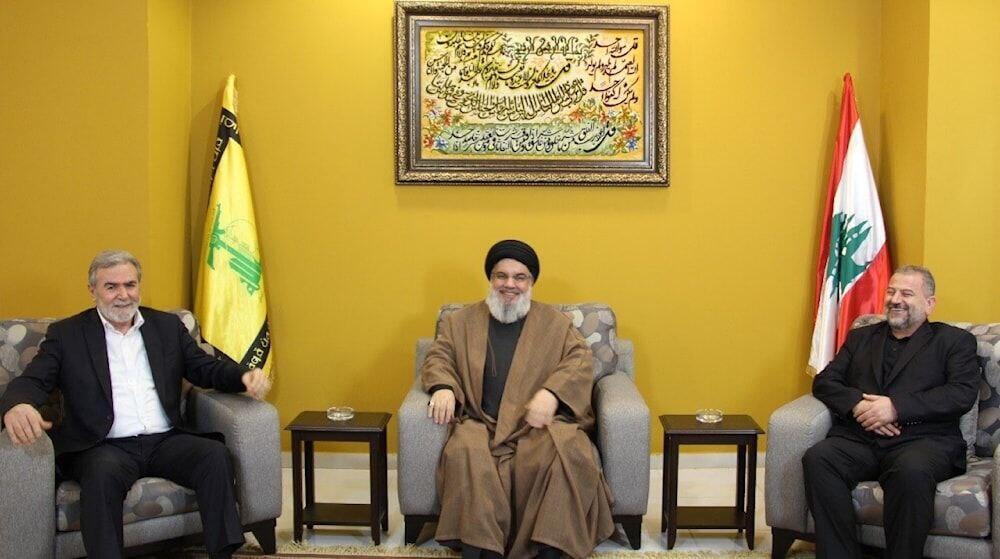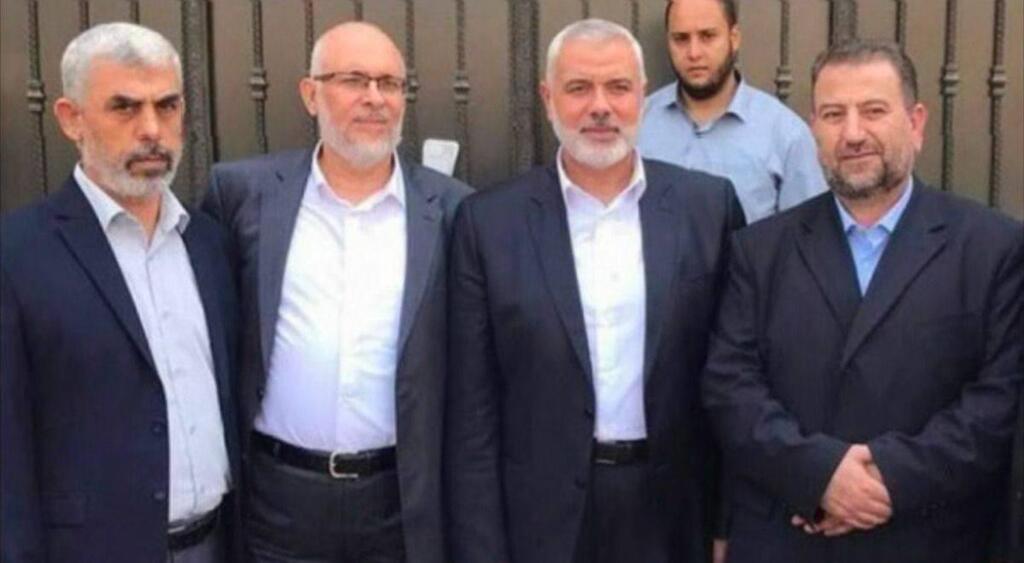Getting your Trinity Audio player ready...
Saleh al-Arouri, deputy chairman of Hamas' politburo who was killed in a drone strike in Beirut, held a meeting with Hezbollah Secretary-General Hassan Nasrallah and Palestinian Islamic Jihad (PIJ) Secretary-General Ziyad al-Nakhalah a month before the October 7 attacks, in which they discussed recent West Bank developments, as well as the idea of escalating "resistance."
Read more:
The three agreed on steps to further enhance military and political coordination between the groups. Normally camera-shy, they posed for smiling pictures at the conclusion of the meeting.
Fast forward two weeks and Israeli security forces arrest eight students hiding in Birzeit University, north of Ramallah, on suspicion of planning a terrorist attack, according to IDF and Shin Bet intelligence. On that very morning, several shooting attacks were executed in the northern sector of the West Bank, with no casualties.
Meanwhile, Beirut played host to al-Arouri and several other prominent Hamas and PIJ figures, promising an escalation in the realm of armed resistance. Following that announcement, three fires broke out along the Gaza border region, likely by incendiary balloons emanating from inside the Gaza Strip. Two of the fires burned near Kibbutz Be'eri and the third near Kibbutz Kissufim.
A source linked to Hezbollah told French newspaper Le Figaro that about 30 minutes before the October 7 attacks commenced, Hamas leader in Gaza Yahya Sinwar instructed al-Arouri to inform Nasrallah of the impending attacks. However, this doesn't conclusively indicate that al-Arouri wasn't involved in the planning.
Almost two months later, in early December, al-Arouri told Al-Jazeera that negotiations with Israel were on hold, and hostages wouldn't be returned before a full cessation of hostilities.
Al-Arouri, seemingly aware he was living on borrowed time after Prime Minister Benjamin Netanyahu announced the resumption of targeted killings, didn't conceal this in his interviews. As the architect of the October 7 attacks and a charismatic figure, he was Hamas' most influential speaker, captivating audiences. Additionally, he served as the crucial link between Iran and its regional allies, Hezbollah and Hamas.





